Partners
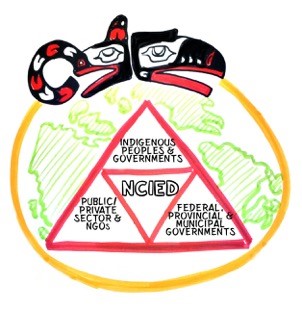
In 2004, the predecessor to the NCIED, the National Chair in Aboriginal Economic Development (NCAED), emerged from a widely recognized need for a sustained program of research and action in Indigenous economic development in Canada. The proposal garnered strong support among communities, governments, businesses and the financial sector. With generous funding commitments from the government of Canada (Indigenous and Northern Affairs Canada), the government of British Columbia, EnCana Corporation and BC Hydro, the Chair moved forward.
Ten years later, in order to fulfill broader responsibilities in enabling Indigenous economic development and rebuilding Indigenous economies, the Chair was restructured and converted into the National Consortium for Indigenous Economic Development. The NCIED’s mission continues be a strong practical focus on optimizing conditions for Indigenous economies, in collaboration with a range of entities.
We also acknowledge the federal government (Services Canada and Western Economic Diversification) and the government of British Columbia for their substantial support, including funding and resources, to enable the delivery of the Indigenous-ACE program.
Indigenous Peoples and governments
BC Assembly of First Nations (BCAFN)
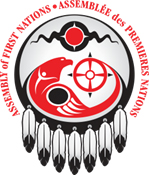 The NCIED was honoured to partner with BCAFN to provide a peer-reviewed body of literature to provide a useful lens for the BCAFN when evaluating goals, purposes and impacts of their sustainable economic development work. The NCIED also produced a series of videos to communicate the results of the literature review.
The NCIED was honoured to partner with BCAFN to provide a peer-reviewed body of literature to provide a useful lens for the BCAFN when evaluating goals, purposes and impacts of their sustainable economic development work. The NCIED also produced a series of videos to communicate the results of the literature review.
BC Association of Aboriginal Friendship Centres (BCAAFC)
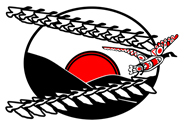 The BCAAFC is a successful community-based organization with 25 Friendship Centres in BC.
The BCAAFC is a successful community-based organization with 25 Friendship Centres in BC.
One of the long-term strategies of the BCAAFC is to support Indigenous youth to access social innovation and entrepreneurship opportunities.
The NCIED and BCAAFC partnership focuses on providing culturally appropriate workshops and training designed specifically for Indigenous youth.
Additionally, to further managers’ training, experience and management skill set, a customized management program was co-developed to aid in succession planning for Friendship Centres.
BC Indigenous Clean Energy Initiative (BC ICEI)
Miles Richardson, NCIED Chair, is a member of the BC ICEI Steering Committee.
The goals of the BC ICEI include 1) fostering Indigenous community awareness, engagement and capacity to participate in clean energy projects and 2) providing “pathfinding” support and establishing a stakeholder advisory committee to help BC Indigenous communities navigate development processes and leverage federal, provincial and regional clean energy supports, including funding.
Calvin McNeil
Calvin McNeil is a well-known Nisga’a artist. Calvin’s carvings, Small Warrior Mask and Eagle on Beaver Stand enhanced promotional material for the 2017 Ideafest event, Brave Spirits on New Paths: The Road to Indigenous Economic Reconciliation.
Other work by Calvin includes the new carved sign for the Nisga'a Museum.
Coast Funds (COF)
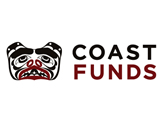 Coast Funds is responsible for overseeing the largest and most successful Indigenous community economic development fund in British Columbia.
Coast Funds is responsible for overseeing the largest and most successful Indigenous community economic development fund in British Columbia.
The fund, created through contributions from the provincial government, the Government of Canada and private foundations, aims to support sustainable businesses and community-based employment for First Nations people along the British Columbia Coast.
Haida Nation
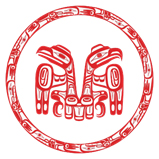 "We began discussions with the University of Victoria in 2012 at which time we brought forward our specific training needs. Our partnership with UVic is strong and continues to deepen with the success of the program, Haida Owned & Operated.
"We began discussions with the University of Victoria in 2012 at which time we brought forward our specific training needs. Our partnership with UVic is strong and continues to deepen with the success of the program, Haida Owned & Operated.
The Haida Entrepreneurship program began in October 2014 with 18 participants and ended in March 2015 with 14/18 participants graduating. We are proud of the 78% graduation rate. However, we are most proud of the strength that these 14 Haida entrepreneurs will bring to changing the economy in Haida Gwaii."
—Peter Lantin (kil tlaatsg’aa), President of the Haida Nation
Halalt Nation
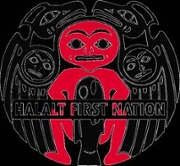 Halalt First Nation (HFN) is located on southeastern Vancouver Island, near Chemainus, BC. The HFN 2018-2019 Comprehensive Community Plan outlines a key objective of the Nation’s economic development strategy: develop a self-sufficient and sustainable economy that will provide reliable employment and business opportunities, as well as independence.
Halalt First Nation (HFN) is located on southeastern Vancouver Island, near Chemainus, BC. The HFN 2018-2019 Comprehensive Community Plan outlines a key objective of the Nation’s economic development strategy: develop a self-sufficient and sustainable economy that will provide reliable employment and business opportunities, as well as independence.
The vision includes building entrepreneurial capacity for members to start and pursue their own businesses based on local resources and expand economic development and self-sufficiency in their community. NCIED was honoured to partner with HFN to co-develop and deliver the Halalt Tourism Skills Development business training in 2019, and looks forward to future initiatives.
Heiltsuk Nation
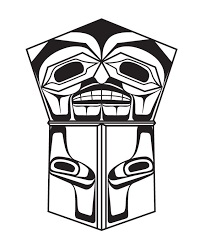 The Heiltsuk Nation, located within the ‘Great Bear Rainforest’ in Bella Bella, in the Central Coast of BC, focuses on creating community economic development opportunities that adhere to their traditions and values.
The Heiltsuk Nation, located within the ‘Great Bear Rainforest’ in Bella Bella, in the Central Coast of BC, focuses on creating community economic development opportunities that adhere to their traditions and values.
The core business strategy includes building capacity and entrepreneurship in the creation of a viable regional economy guided by the principle of sustainability.
NCIED was honoured to partner with the Heiltsuk Council to co-develop and deliver in 2019-2020 the Heiltsuk-ACE program designed to tap into tourism and recreation, resource management and fisheries opportunities available in their traditional territory.
Kwakuitl First Nation
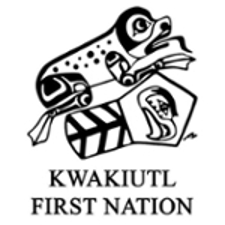 Kwakuitl First Nation is located on northeastern Vancouver Island, BC. The Kwakiutl Economic Development Department encourages entrepreneurial pursuits and the I-ACE program aligns with their strategy to increase the number of Indigenous-owned businesses that tap into the local economic opportunities and provide sustainable employment for community members.
Kwakuitl First Nation is located on northeastern Vancouver Island, BC. The Kwakiutl Economic Development Department encourages entrepreneurial pursuits and the I-ACE program aligns with their strategy to increase the number of Indigenous-owned businesses that tap into the local economic opportunities and provide sustainable employment for community members.
In collaboration with the Kwakuitl Band Council, the Indigenous ACE - Kwakuitl Entrepreneurial Skills Program was co-developed and delivered in Port Hardy, BC, in 2020-2021.
Malahat Nation
 Malahat Nation (MN) is located on the western shore of Saanich Inlet, south of Mill Bay on south Vancouver Island, BC.
Malahat Nation (MN) is located on the western shore of Saanich Inlet, south of Mill Bay on south Vancouver Island, BC.
The strategic location includes a deep-sea port with quick access to international shipping lanes. The MN’s Malahat Nation Land Code and land use plan, combined with international sea, land and air travel, well positions it to attract local and overseas investments and interests.
The NCIED was honoured to partner with the Nation to co-develop and deliver the Malahat Economic Development and Entrepreneurship Training program.
Nisga'a Nation
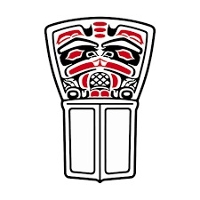 Nisga'a Nation, located in north western BC, along the Nass River and its delta, is comprised of four member communities: Gitlaxt’aamiks, Gitwinksihlkw, Gingolx, and Laxgalts’ap. The Nisga’a Final Agreement that came into effect on May 11, 2000, and negotiated between Canada, BC and the Nisga’a Nation, became the first modern day comprehensive treaty in BC.
Nisga'a Nation, located in north western BC, along the Nass River and its delta, is comprised of four member communities: Gitlaxt’aamiks, Gitwinksihlkw, Gingolx, and Laxgalts’ap. The Nisga’a Final Agreement that came into effect on May 11, 2000, and negotiated between Canada, BC and the Nisga’a Nation, became the first modern day comprehensive treaty in BC.
With Nisga’a lands and resources secure, Nisga’a Lisims Government supports and facilitates new initiatives to build capacity, explore opportunities and develop sustainable economies. NCIED is honoured to have collaborated with the Nisga’a Nation for several years.
Most recently, in 2019, an Indigenous management and leadership program, Nisga'a CAMP, was co-developed and delivered in Nisga’a Nation. In 2020, the program will be offered to members of Vancouver Nisga’a Urban Local.
North Vancouver Island Aboriginal Training Society (NVIATS)
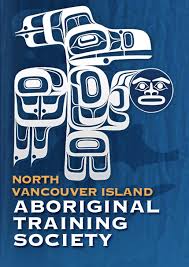 NVIATS is an Indigenous training organization located in Campbell River, on Vancouver Island, BC. The organization operates under the Aboriginal Skills and Employment Training Strategy (ASETS), funded by Human Resources and Skills Development Canada. NCIED was honoured to partner with NVIATS and the Nanwakolas Council to co-develop and deliver the North Island-ACE (NI-ACE) program in 2020.
NVIATS is an Indigenous training organization located in Campbell River, on Vancouver Island, BC. The organization operates under the Aboriginal Skills and Employment Training Strategy (ASETS), funded by Human Resources and Skills Development Canada. NCIED was honoured to partner with NVIATS and the Nanwakolas Council to co-develop and deliver the North Island-ACE (NI-ACE) program in 2020.
Northeast Aboriginal Business Centre
 Northeast Aboriginal Business Centre (NEABC) is dedicated to the vision of financial independence for all Aboriginal persons residing in the North Peace region of BC.
Northeast Aboriginal Business Centre (NEABC) is dedicated to the vision of financial independence for all Aboriginal persons residing in the North Peace region of BC.
From providing a resource library, computers and telephones to business planning and loan application, NEABC supports entrepreneurs.
NEABC offers workshops and programs that focus on business owners and aspiring entrepreneurs, and NCIED was honoured to collaborate with such a committed and dedicated organization to deliver the Treaty 8-ACEprogram, in partnership with the Treaty 8 Tribal Association.
Richard Shorty
Richard Shorty, born in Whitehorse, Yukon, is a self-taught, talented and versatile Indigenous artist of the Northern Tuchone Nation. Internationally known, his unique style blends traditional and contemporary designs in his paintings, as well as on paddles, drums and masks. Richard lives in Vancouver, B.C.
Dr. Brent Mainprize, NCIED Gustavson business school champion, worked closely with Richard to incorporate his powerful image of the Eagle and Salmon to represent the seven key stages (7S’s) of developing a business in the Aboriginal context. The design has received national recognition as part of the Northwest Aboriginal Canadian Entrepreneurs (NW-ACE) program. The NCIED is honoured to continue the partnership with Richard.
Salish Eye Productions
 Tricia Thomas, Laxəlewetstnaat, a proud member of the Halalt Nation, is the owner and creative director of Salish Eye Productions.
Tricia Thomas, Laxəlewetstnaat, a proud member of the Halalt Nation, is the owner and creative director of Salish Eye Productions.
The award winning digital design company with over 10 years of experience offers photography, video production, aerial photo and video, website design, and document design.
The company’s goal is to preserve memories, share stories and represent the voice and vision of all clients in the best of light.
Songhees Nation
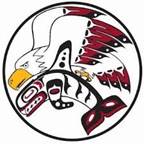 Songhees Nation “strives to achieve Community Vision through good governance, delivering programs and pursuing projects and initiative for the benefit of the Songhees People.” The Nation’s relationship building with other Nations, municipal governments, organizations and educational institutions is a key factor to achieving economic sustainability and community well-being.
Songhees Nation “strives to achieve Community Vision through good governance, delivering programs and pursuing projects and initiative for the benefit of the Songhees People.” The Nation’s relationship building with other Nations, municipal governments, organizations and educational institutions is a key factor to achieving economic sustainability and community well-being.
NCIED is proud to partner with the Songhees Nation in initiatives such as the 2020 NCIED Ideafest event: WISE: Wellness and Indigenous Sustainable Economies.
Splatsin Nation
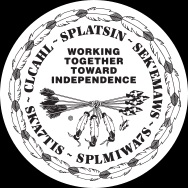 The Splatsin Nation is located in the Thompson Okanagan region of BC, near the city of Enderby to the south, and across the Shuswap River, to the east. It is the most southern Nation of the Shuswap Nation, the largest Interior Salish speaking Nation in Canada.
The Splatsin Nation is located in the Thompson Okanagan region of BC, near the city of Enderby to the south, and across the Shuswap River, to the east. It is the most southern Nation of the Shuswap Nation, the largest Interior Salish speaking Nation in Canada.
Splatsin’s economic development goals include developing capacity, creating and operating businesses, and generating income opportunities while preserving shared cultural and ecological value for generations to come. The NCIED was honoured to co-develop and deliver the Splatsin Indigenous Management (SIM) programs focused on community development and capacity building.
Treaty 8 Tribal Association
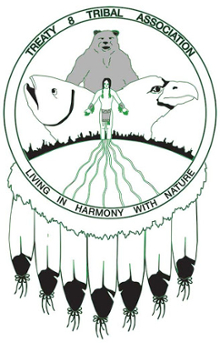 Treaty 8 Tribal Association (T8TA) provides advisory services to six member First Nations in northeastern BC to achieve economic prosperity and a healthy environment while preserving cultural heritage and their history.
Treaty 8 Tribal Association (T8TA) provides advisory services to six member First Nations in northeastern BC to achieve economic prosperity and a healthy environment while preserving cultural heritage and their history.
T8TA member Nations are: Doig River, Fort Nelson, Halfway River, Prophet River, Saulteau and West Moberly. T8TA strives for unity and self-sufficiency and focuses on building capacity and enhancing the social and cultural relationships of their member First Nations.
The NCIED was honoured to partner with T8TA to develop and co-deliver the Treaty 8-ACE in early 2020 in Fort St. John, BC.
Tribal Resources Investment Corporation (TRICORP)
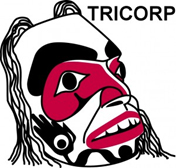 TRICORP is a founding partner in the Northwest Aboriginal Canadian Entrepreneurs (NW‑ACE™) program and the Northwest Empowering Aboriginal Generation of Leaders and Entrepreneurs (NW‑EAGLE™).
TRICORP is a founding partner in the Northwest Aboriginal Canadian Entrepreneurs (NW‑ACE™) program and the Northwest Empowering Aboriginal Generation of Leaders and Entrepreneurs (NW‑EAGLE™).
TRICORP is honoured to see their programs expand throughout BC and the rest of Canada, and partners with the NCIED to share these successful community‑based, capacity-building initiatives with interested Indigenous communities.
The participation of Aboriginal People in the economy as business owners contracting and doing business with other Aboriginal businesses and with non-Aboriginal businesses is the highest form of economic development and provides the greatest promise for our People. The NW‑ACE has become, and will continue to be, the key catalyst in forging our economic self-reliance.
—Frank Parnell, CEO of TRICORP
Tseax Development Group Ltd
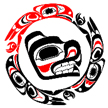 Arthur Mercer, Sim’oogit Galga, owner, Tseax Development Group Ltd., and a Nisga’a hereditary Chief has 25 years’ experience in the areas of government and economic development, as well as business operations that include public companies and private sector development. The company provides strategic business development services and economic development advisory services.
Arthur Mercer, Sim’oogit Galga, owner, Tseax Development Group Ltd., and a Nisga’a hereditary Chief has 25 years’ experience in the areas of government and economic development, as well as business operations that include public companies and private sector development. The company provides strategic business development services and economic development advisory services.
Federal, provincial and municipal governments
BC Ministry of Citizens' Services
BC Ministry of Citizens' Services provides a wide range of services, both in person and online. Buy Goods, Services and Construction, the BC Bid Resources for purchasing goods, services and construction, is designed for public sector buyers to engage the marketplace and manage the contracting process.
In 2018, the Ministries of Citizens’ Services and Indigenous Relations and Reconciliation invited the NCIED to participate in the Indigenous Procurement Initiative (IPI). The mandate of the IPI was to provide input from Indigenous leaders and community members to shape the new BC Procurement Strategy.
BC Ministry of Indigenous Relations and Reconciliation
BC Ministry of Indigenous Relations and Reconciliation leads the BC government in pursuing reconciliation with Indigenous Nations and Peoples of BC.
In 2018, the Ministries of Indigenous Relations and Reconciliation and Citizens’ Services invited NCIED to participate in the Indigenous Procurement Initiative (IPI). The mandate of the IPI was to provide input from Indigenous leaders and community members to shape the new BC Procurement Strategy.
BC Ministry of Jobs, Economic Development and Competitiveness
BC Ministry of Jobs, Economic Development & Competitiveness (JEDC) provides funding, tools, resources, best practices and services to support economic goals of Indigenous and non-Indigenous, rural and urban, communities.
At the Ministry’s invitation, the NCIED was pleased to join BC Assembly of First Nations, New Relationship Trust, and Indigenous Business and Investment Council to design and contribute to the analysis of the B.C. First Nation Community Economic Development Survey. JEDC released the survey in March 2020 and shared the information with communities to support their approaches and goals to economic development.
BC Ministry of Jobs, Tourism and Skills Training (JTST)
Ministry of Jobs, Tourism and Skills Training partnered with NCIED to provide a series of one-day workshops: Aboriginal Community Economic Development Foundations.
The training focused on providing a framework and tools for Indigenous leaders to define strategies tailored for their communities to advance sustainable economic development.
The ministry was re-named the Ministry of Jobs, Economic Development and Competitiveness.
BC Rural Dividend Program
The BC Rural Dividend Program provides $25 million a year over three years to assist rural communities with a population of 25,000 or less to reinvigorate and diversify their local economies. It was developed to recognize both the contribution rural communities have made to BC’s economy, and the unique challenges they face to diversify beyond natural resources.
Crown-Indigenous Relations and Northern Affairs Canada (CIRNAC)
 CIRNAC aims to renew the nation-to-nation, government-to-government relationship between Canada and Indigenous Nations.
CIRNAC aims to renew the nation-to-nation, government-to-government relationship between Canada and Indigenous Nations.
The ministry supports Government of Canada structures to enable Indigenous peoples to build capacity and support their vision of self-determination.
Indigenous Services Canada (ISC)
![]() ISC works collaboratively with partners to improve access to high quality services for Indigenous peoples in Canada.
ISC works collaboratively with partners to improve access to high quality services for Indigenous peoples in Canada.
The ministry provides funding to the Post-Secondary Partnerships Program (PSPP) to support Nations-directed, community-based programming.
The PSPP supports Nations in defining their own partnerships with educational institutions to increase the availability of education programs tailored to their cultural and education needs.
Service Canada
 Service Canada provides Canadians with a wide range of government services and benefits. Employment and Social Development Canada (ESDC) is a branch of Service Canada that funds innovative programs designed specifically for Indigenous youth to build talent, skills and resources to participate in learning, work and their community.
Service Canada provides Canadians with a wide range of government services and benefits. Employment and Social Development Canada (ESDC) is a branch of Service Canada that funds innovative programs designed specifically for Indigenous youth to build talent, skills and resources to participate in learning, work and their community.
ESDC funded programs that included NCIED as a partner. BC Association of Aboriginal Friendship Centres (BCAAFC) invited NCIED to co-develop and co-deliver an entrepreneurial training customized for Indigenous youth.
In 2018, the federal government approved funding for the BCAAFC and Gustavson School of Business to co-deliver the BC Indigenous Youth 3C Challenge.
In 2020, ESDC approved funding for an Indigenous Youth Employment and Skills Strategy initiative submitted by NCIED.
Western Economic Diversification Canada (WD)
 Through the Western Diversification Program, WD makes strategic investments in initiatives with not‑for‑profit organizations that enhance and strengthen the economy of Western Canada.
Through the Western Diversification Program, WD makes strategic investments in initiatives with not‑for‑profit organizations that enhance and strengthen the economy of Western Canada.
The NCIED and the University of Victoria Gustavson School of Business are honoured to partner with the WD to deliver the I-ACE program in Western Canada, including the customized ACE for Indigenous Artists and EAGLE e-commerce programs.
Public/private sector and NGOs
Algonquin College of Applied Arts and Technology
![]() Algonquin College of Applied Arts and Technology is the largest college in Eastern Ontario.
Algonquin College of Applied Arts and Technology is the largest college in Eastern Ontario.
In 2019, in collaboration with Algonquin’s Ron McLester, Vice President of Truth, Reconciliation & Indigenization, and Andre O'Bonsawin, Manager of Indigenous Initiatives, NCIED signed a Memorandum of Understanding with Algonquin College for the purpose of learning from each other.
Banff Centre for Indigenous Leadership and Management (BCILM)
 The BCILM is designed to develop approaches and models for individual and collective Indigenous leadership through wise practices in order to address the challenges and realize the potential for Indigenous communities.
The BCILM is designed to develop approaches and models for individual and collective Indigenous leadership through wise practices in order to address the challenges and realize the potential for Indigenous communities.
The NCIED partnered with BCILM to conduct the Cooperative and Community‑Based Economy Research – ‘Wise Practices’ (CCBE) research project in British Columbia Indigenous communities.
Canadian Council for Aboriginal Business (CCAB)
The CCAB is a non-profit organization with a mission “to foster sustainable business relations between First Nations, Inuit and Métis people and Canadian Business” through diverse programming and providing tools, training and network building.
Coast Mountain College
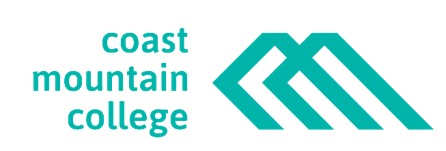 NCIED is honoured to partner with Coast Mountain College (CMC) in the co-development and delivery of Indigenous education and training.
NCIED is honoured to partner with Coast Mountain College (CMC) in the co-development and delivery of Indigenous education and training.
The second cohort of the unique ACE for Indigenous Artists was delivered at Coast Mountain College in Terrace, BC, in 2019.
In 2020, in partnership with Tribal Resources Investment Corporation and Gustavson School of Business (GSB), the Advancing Indigenous Management (AIM) program was developed. Tailored for members of Indigenous organizations in northwest BC, AIM will be delivered in 2020 in Terrace, BC, by GSB and CMC instructors.
Ducks Unlimited Canada
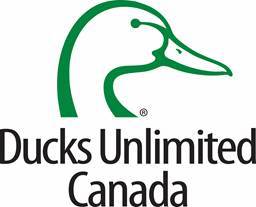 Ducks Unlimited Canada (DUC) is a not-for-profit corporation in Canada that focuses on conserving, restoring and managing wetlands and associated habitats for North America’s waterfowl. Wetlands, one of the most important ecosystems on the planet, play a critical role in maintaining the health of the environment, economy and lifestyles.
Ducks Unlimited Canada (DUC) is a not-for-profit corporation in Canada that focuses on conserving, restoring and managing wetlands and associated habitats for North America’s waterfowl. Wetlands, one of the most important ecosystems on the planet, play a critical role in maintaining the health of the environment, economy and lifestyles.
DUC, NCIED, Gustavson School of Business and UVic entered a partnership agreement in June 2020. The objective of the Project includes analysis and development of a business case for funding to support a National Guardians program of conservation, protection and management of marine and associated terrestrial areas known as Indigenous Protected Areas (IPAs). With Miles Richardson as lead, the critical project is underway.
Emily Carr University of Art + Design
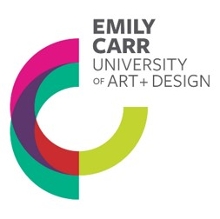 Emily Carr University of Art + Design (ECUAD) is a world-renowned art and design school. Four distinct faculties offer leading art, design and media degree programs, certificates, and graduate studies.
Emily Carr University of Art + Design (ECUAD) is a world-renowned art and design school. Four distinct faculties offer leading art, design and media degree programs, certificates, and graduate studies.
Brenda Crabtree and Connie Watts, Director and Associate Director respectively, Aboriginal Program, collaborated in the development and delivery of the unique ACE program that was customized for Indigenous Artists.
In 2020, the third cohort of ACE-Artists will be delivered in Vancouver at ECUAD.
Freda Diesing School of Northwest Coast Art
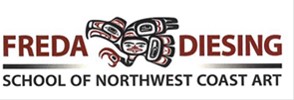 Freda Diesing School of Northwest Coast Art, located within Coast Mountain College in Terrace, BC, was created to honour Haida artist, Freda Diesing, who was an exceptional carver, teacher and mentor.
Freda Diesing School of Northwest Coast Art, located within Coast Mountain College in Terrace, BC, was created to honour Haida artist, Freda Diesing, who was an exceptional carver, teacher and mentor.
Fuselight Creative

With the home office in Victoria, team members span North America offering graphic facilitation, animation, journey mapping, knowledge walls and infographics.
They are excited about how the innovative uses of visuals and technology facilitate dialogue and enhance understanding of complex or multi-layered topics.
University of Oklahoma – Agreement of Academic Cooperation
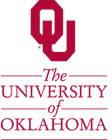 On June 6, 2017, the NCIED signed an Agreement of Academic Cooperation with the University of Oklahoma.
On June 6, 2017, the NCIED signed an Agreement of Academic Cooperation with the University of Oklahoma.
UVic Faculty of Fine Arts
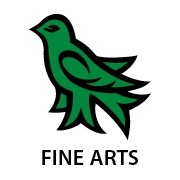 The unique ACE, customized for Indigenous Artists, was co-developed with post-secondary institutions in BC, including UVic’s Faculty of Fine Arts.
The unique ACE, customized for Indigenous Artists, was co-developed with post-secondary institutions in BC, including UVic’s Faculty of Fine Arts.
Dr. Evanthia Baboula, Associate Dean of Fine Arts, joined successful Indigenous artists to form the Advisory Committee that provided guidance with respect to the curriculum and course delivery.
The first cohort of the successful program, delivered in south Vancouver Island, offered participants access to studios in the Fine Arts Faculty.


